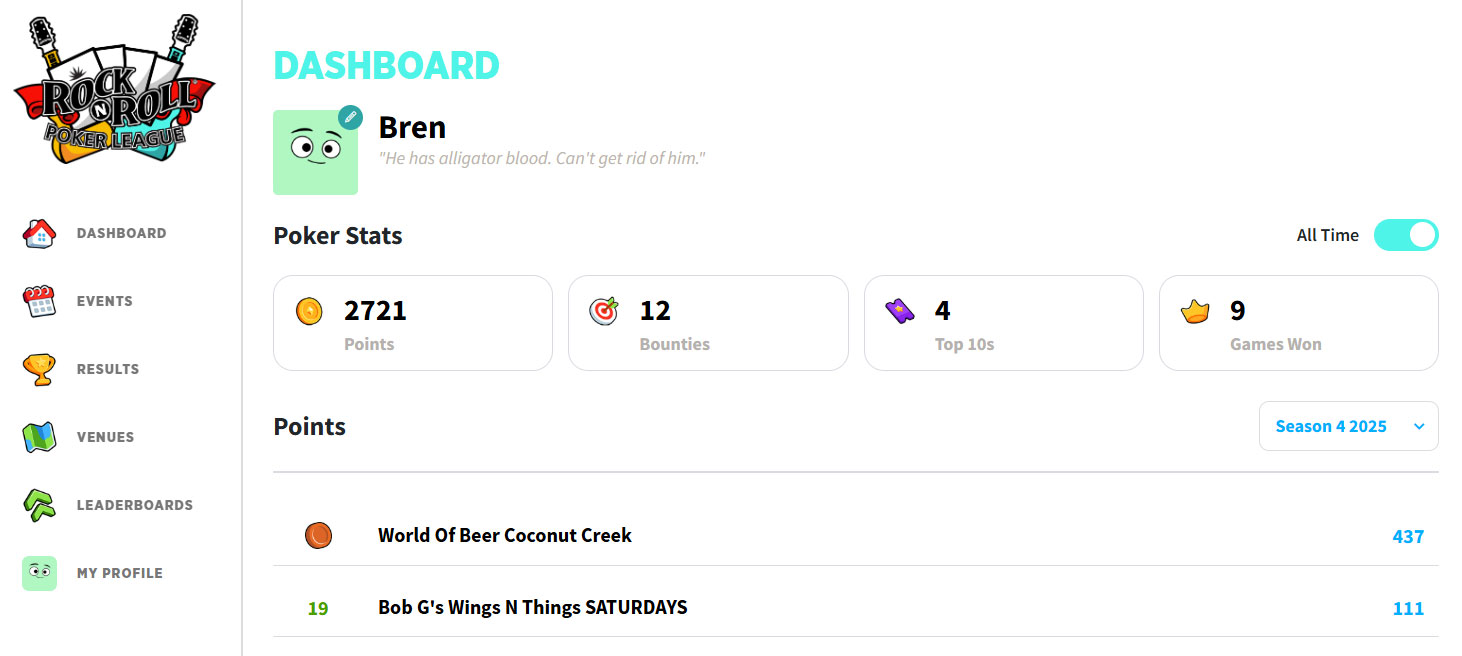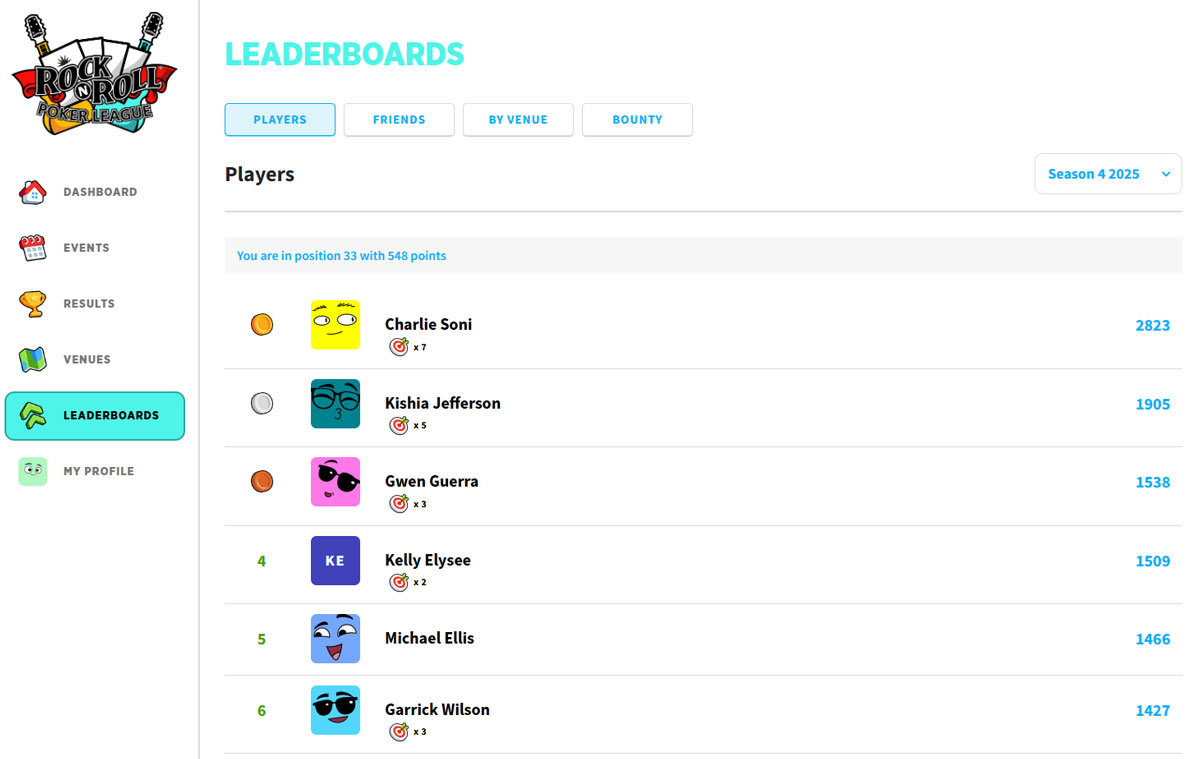Case Study: How the Octalysis Framework Transformed a South Florida Poker League with Zulu Shack Creative

A Quietly Radical Poker Project
Rock N Roll Poker League was never trying to be a tech company. At its core, it’s a grassroots, free-to-play poker league that takes place across local bars in South Florida. Founded by Billi and Pat — a couple who love the game and the people it brings together — the league is as much about community as competition.
For some time now, it ran on word of mouth, regulars, and a basic WordPress website that posted times and venues. It worked — as much as it could.
The digital experience couldn’t keep up with the momentum offline. There was no easy way to track performance. No player history. No way to make the game feel like more than just the night’s results. The league had grown — the tech hadn’t.
Brenden, founder of Zulu Shack Creative and a longtime poker player himself, saw the disconnect. More than that, he saw the opportunity: to design a system that didn’t just display information, but deepened the player experience.
So he pitched something bigger — and backed it personally.

Building for Motivation
Zulu Shack Creative rebuilt the platform from scratch, using custom .NET development to handle live data, seasonal resets, and real-time player engagement.
The foundation of the rebuild was the Octalysis Framework — a gamification model that taps into human motivation through eight psychological drivers.
Four of them became central to the new platform:
- Development & Accomplishment: Players now earn XP, Chip-Ups, and seasonal ranks for participating and placing — turning each game into part of a longer-term journey.
- Ownership & Possession: Personal profiles, avatars, and performance stats help players track progress and take pride in their history.
- Social Influence & Relatedness: Leaderboards, venue rivalries, and dealer shout-outs create moments of recognition and friendly tension.
- Unpredictability & Curiosity: Dynamic rewards and evolving achievements make the experience feel less like a scoreboard, more like a story.
The result is a platform that feels alive — where every attendance, win, or loss contributes to a growing narrative.
The First Results Are In
Within just weeks of launching the new platform, the league saw a 50% increase in player turnout for games and tournaments.
That kind of lift doesn’t come from promotion alone — it comes from deeper engagement. Players don’t just show up; they participate with purpose. They check their stats, compare with friends, and come back to move forward.
It’s poker, reimagined not as a one-off event, but as an evolving experience.
A Long Game, Played Right
This rebuild is only phase one. The system is already built to support future layers — mobile apps, badge systems, deeper XP economies, and more advanced gamification mechanics. But what makes this project different isn’t the tech stack. It’s the partnership behind it.
This isn’t a client-agency relationship. It’s a shared bet.
Brenden didn’t just design the system — he became a stakeholder in the league itself, committed to building something meaningful with Billi and Pat for the long haul.
The goal? See how far they can take it. National scale, maybe. Maybe more. But the point isn’t pressure — it’s momentum.
In poker, as in life, the chips fall where they may. But with the right table, the right partners, and the right strategy — you play the hand all the way through.